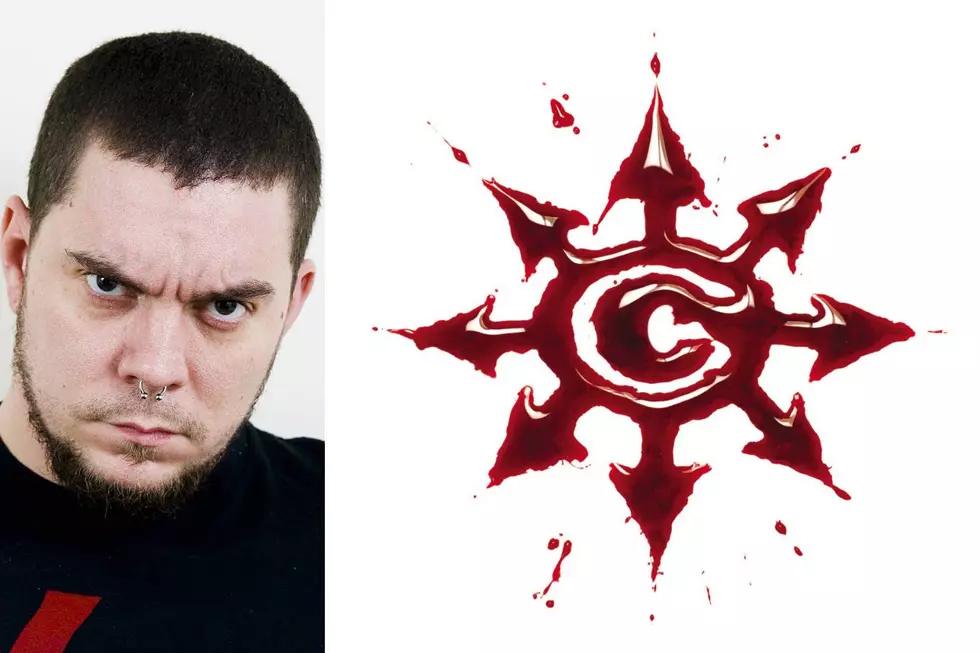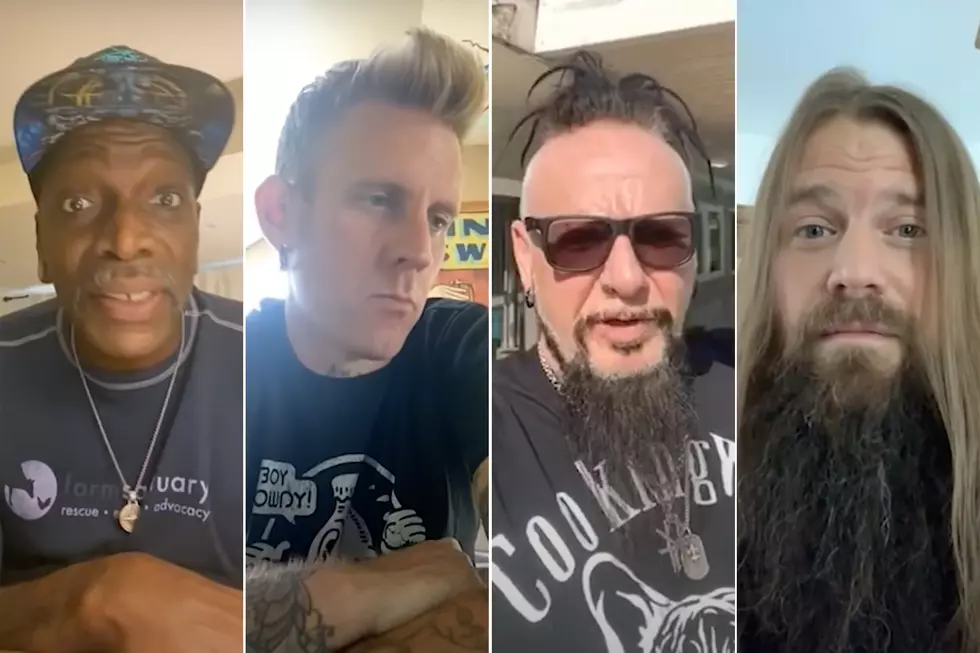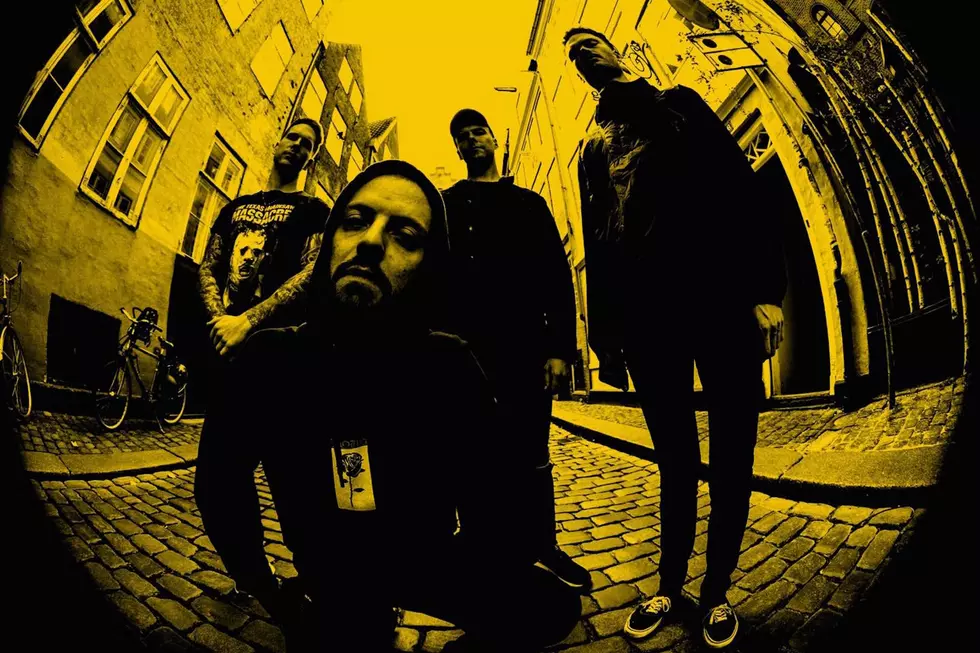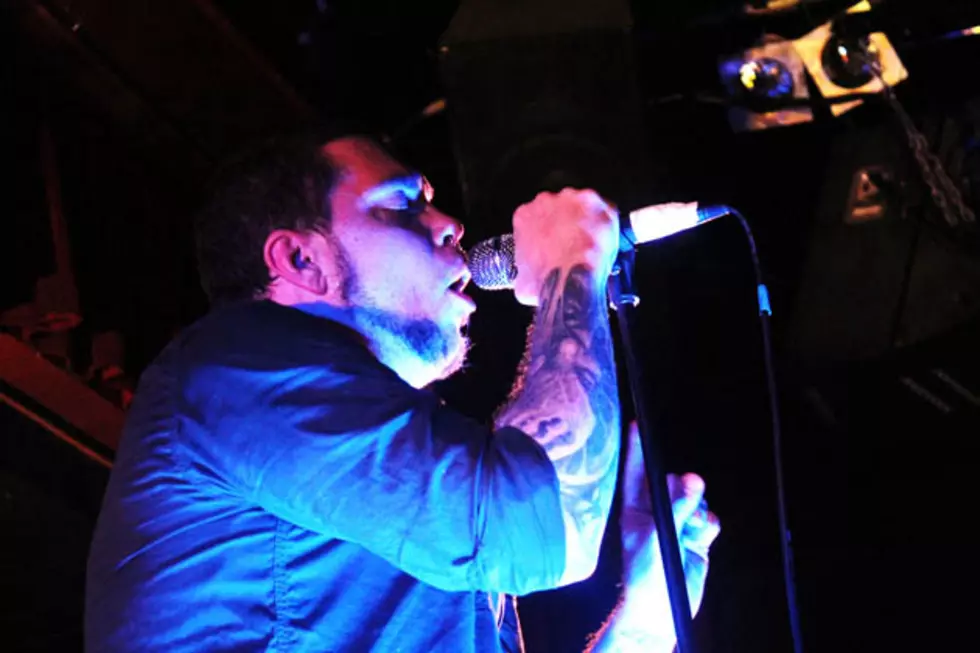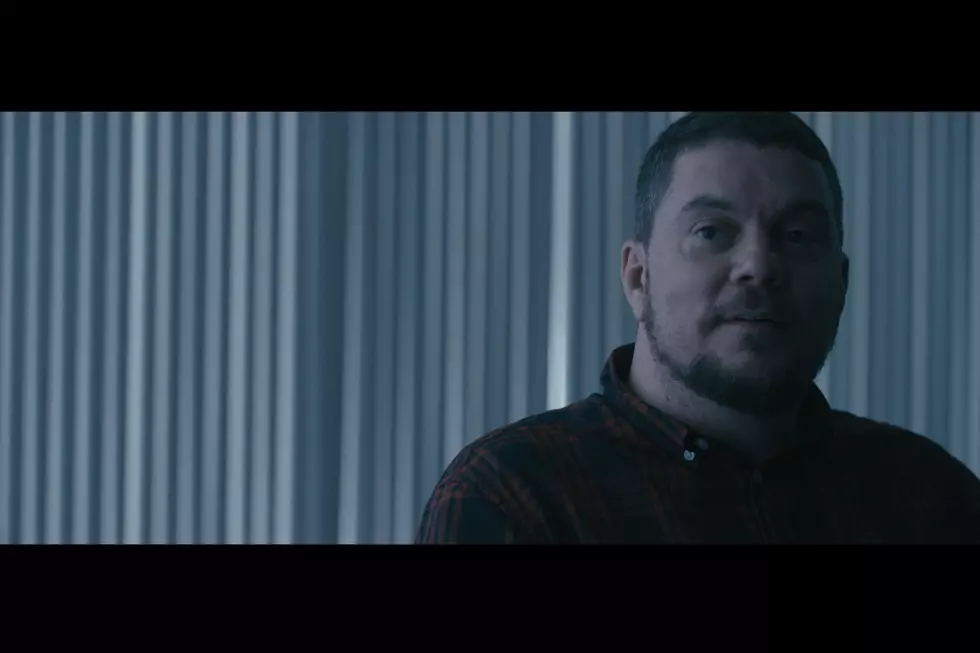
‘Down Again’ Explores Mental Illness Via a Metal Frontman
For many longtime touring musicians, there’s a force even more destructive than drugs and alcohol and it’s one that’s widely misunderstood and sometimes even marginalized by society: mental illness. In the recent past, the hard rock and metal communities have lost several major artists to the debilitating condition: Linkin Park’s Chester Bennington, Soundgarden’s Chris Cornell, and, to a lesser extent, Huntress frontwoman Jill Janus.
Then there are celebrities outside the music community including Robin Williams, Anthony Bourdain and Kate Spade who also took their lives after losing battles with depression. For many, it’s hard to fathom why successful, seemingly happy people with spouses and children would opt for death over life. There’s no logical or reasonable explanation – just that severe mental illness can be so damaging it overpowers the instinct to survive and makes it impossible to enjoy even the greatest success.
In the new short film Down Again, Cleveland-based director Nick Cavalier explores the causes and challenges of mental illness through the life and career of Chimaira frontman Mark Hunter. The vocalist suffers from bipolar personality disorder, a condition that causes him to see-saw between euphoric highs and devastating lows. For those with manic-depressive illness (another name for the condition) heightened life experiences, such as career triumphs or setbacks, the discovery of a new love or the end of a relationship, often exacerbate the illness. In addition, excessive euphoria can lead to thrill-seeking and risk-taking behavior, and severe depression can result in overdoses or even suicide.
Cavalier understands mental illness as well as anyone. He’s bipolar, and between the ages of 10 and 16 he bounced in and out of mental hospitals before he discovered filmmaking, which has allowed him to better understand and cope with his condition. After numerous documentaries and commercial shoots, he decided to make a film about a single individual in the music industry that has struggled with mental illness. Since he was a longtime fan of Chimaira, an influential thrash/metalcore band from Cleveland that accrued a devoted following throughout the oughts, Cavalier was thrilled that vocalist Mark Hunter volunteered to be the main subject of the film. In addition to profiling the 16-year career of Chimaira, Down Again (named after one of the band’s songs) explores both how music has been an important form of therapy for Hunter and how playing music professionally led him into a depressive spiral that forced him to quit the industry in 2014, after releasing seven albums and going on several tours.
“I thought it was an important conversation to have and Mark was willing to have it,” Cavalier says. “I wanted Mark to be an allegory for people who are struggling with this kind of stuff. And it isn’t just musicians. This movie could have just as easily been about a comedian or pretty much anyone else.”
The film features plenty of footage of Chimaira onstage through the years; the songs “Pictures in the Gold Room,” “Nothing Remains” and the title track are prominently featured. In addition, the vocalist is filmed talking to the camera about his illness and in a session with a psychiatrist.
“I noticed an inability to control emotions,” he says in the movie. “I’ll, a lot of times, feel indestructible -- ready to take on the world. But then the opposite side is the dude that doesn’t want to do anything -- irritable. Everything you say is an attack. So I can be the snake, [I can be] manic where I’m very coiled up, ready to strike very ferociously. And that’s the bad side of the mania. But I want to deal with the darkest moments. That’s the connection. Music did that for me.”
Cavalier shot, directed and edited Down Again with financial assistance from
The Centers For Families And Children, a Cleveland-based organization that addresses and treats mental health and other psychological disorders. The donations covered gear, camera rental, and lights, but all of the work for Down Again came from volunteers. Cavalier and his team assembled Down Again over a six month period during his downtime, mostly at nights. The exhaustive pace was the only way they could have the movie finished and posted online on October 10, World Mental Health Day.
“I think it’s important for people to understand and see this -- even outside of the metal community,” Cavalier tells Loudwire. “That’s what I’m really aiming for -- having people understand that metal is not just screaming. When I discovered metal, it was a total catharsis, like Aristotle’s idea of catharsis. Mark, or whoever was singing on any record expressing how he felt, connected to me and it was like he was speaking for me. It made me feel like I wasn’t alone.”
Cavalier was able to create Down Again from script to post-production in a mere six months, mostly because the interview and editing process was smooth and productive. Even casting the production was a no-brainer: Cavalier met Hunter last year on a panel at the mental health awareness event Acting Out, which raised money for suicide prevention. The psychiatrist on the panel, Dr. Patrick Runnels, who works with The Centers For Families and Children, was interested in the correlation between music and mental illness and agreed to interview Hunter for the film.
“I actually enjoyed the therapy session,” Hunter tells Loudwire. “I’m always interested in learning more about myself and my condition. And telling it like it is has always been my style. I’d rather have an honest, open conversation because then it’s easier to get all the facts out there and the complete story, or at least enough of the story to form your own opinion. I can’t imagine tightening up on something like this because it’s too important to have this kind of conversation. I had to give 100 percent.”
Hunter’s lifelong struggle with bipolar disorder has had a profound impact on his life. In addition to being a severe obstacle, it drew him to the music business and later compelled him to pick up a camera to express his emotions through art. His is neither a victorious nor tragic tale, it’s more a story of a creative individual who has triumphed over adversity and learned to deal with mental illness by recognizing it for what it is and avoiding situations that cause the greatest strain.
Hunter’s parents got divorced when he was young and he grew up with his mother. “It was tough to see the obstacles that she went through to raise us,” Hunter says. “I wouldn’t say I had the worst childhood ever, but I definitely didn’t grow up in a Leave it to Beaver setting.”
An anxious child, Hunter suffered from a rare genetic condition called cyclical vomiting syndrome. “For me, it’s stress related,” he said. “A lot of my bandmates have seen it firsthand. I actually just found out that some of my family members had similar issues, which I never knew.”
As a teen, Hunter discovered that listening to metal and going to shows allowed him to deal with his intense emotional mood swings. When he was depressed he felt better after rocking out. Even so, he didn’t have a real grasp of his illness. “I thought I was just going through normal teenage hormonal stuff,” he says. “It wasn’t until later that it was explained to me, 'No, man. You were dealing with some shit. You just didn’t know how to deal with it.'”
While Hunter didn’t understand the symptoms and results of his manic-depressive illness, he certainly wasn’t the only one. His doctor prescribed him medicine for depression, then in 2012 Hunter was at a doctor’s appointment fidgeting and rapidly talking. “Suddenly my doctor went, ‘Oh my God. You have hypomania,’” Hunter says. “I paused because I didn’t know what that was. And he said, ‘I’ve been treating you for depression.’ So we started again. It made sense because some of the medications I was on at the time were ineffective and/or making my symptoms exaggerated.”
Hunter took medication on and off throughout high school. When he wasn’t medicated he sometimes suffered major depressive episodes. “I would end up in the hospital because I drank too much, and I was purposely trying to drink too much,” he says. “I would try to self-harm in that way.”
Being a touring band and experiencing such unpredictable incidents as broken down buses, backstage shenanigans and inner-band turmoil frayed Hunter’s psyche, and while he loved performing, being offstage was often overwhelming. In the middle of one world tour, he felt like he was losing his mind. “They call it a 'trip' for a reason,” he explains. “I felt like I had taken 1,000 hits of acid on this trip around the world. I didn’t feel like myself and I couldn’t wait for it to be over.”
To try to cope, he partied with his band and others and self-medicated with alcohol. Then, during a trip to Los Angeles, Hunter had a sobering experience that helped him reduce his booze intake. “I went to The Rainbow [Bar And Grill] for the first time,” he recalls. “I just remember seeing all these band guys from the ‘80s -- the hair metal bands -- Cinderella type cats. And they’re all just still in leather, aging, getting shitfaced drunk. I was like, ‘That’s never going to be me.’ I kind of had a straight, good head on my shoulders after seeing that.”
Between 2002 and 2004, following Chimaira’s second full-length The Impossibility of Reason, the band experienced several lineup changes but soldiered on despite the disruptions. However, Hunter became increasingly disenchanted with the music business and by 2006, during a tour for the band’s self-titled third album, he was absolutely miserable.
“There I was getting wasted every night on the bus,” he says. “Me and our keyboard player Chris [Spicuzza] were trying to outsleep one another on a European tour. We were trying to see who could sleep the entire tour away. I was taking sleeping pills to try to stay asleep and we were both extremely depressed. It was ridiculous. Of course, I realized that was stupid and I started thinking, ‘Oh shit. Here I am becoming one of the future guys at the Rainbow.’”
As the years passed and file sharing and streaming became the dominant methods for fans to listen to music, Chimaira remained productive but felt the impact of an industry in transition. “It’s crazy because technology led us to have a career,” Hunter says. “We were discovered by people on the Internet. But on the flip side, it’s a huge reason why we’re not a band anymore. Sales plummet and you’re getting less than you’re worth from a record label. All the support starts dwindling -- your marketing, your promotion everything.”
Chimaira persevered even after bands that once opened for them started headlining bills they were on. Their fan base was still avid and the roar of the crowd was still a major rush, but there were too many chinks in the armor to keep the group from disintegrating. In 2011 everyone but Hunter left. And after Chimaira’s seventh album, 2013’s Crown of Phantoms, the band broke up.
“Everything just started falling apart when some of the guys left and it started a domino effect,” Hunter says. “Once one person leaves it starts the ideas in other people’s heads, ‘Oh, I can get out, too!’ Before that, it almost felt like we were in this sealed contract that was unbreakable. I tried to keep the band together and start again with a different lineup but I felt like a fish out of water. I was in my mid-30s and making $1,000 on a tour. That doesn’t do a lot to help someone with a depressive personality. I love the craft and the passion but I felt like I reached every mountain and now I was avalanching down and while I was doing it I was going to come home bankrupt.”
Without a band to consume him, Hunter discovered photography and dove into it with the type of fervor he had once reserved for music. Whether it was a result of the manic side of his condition or his true calling didn’t matter. He found a new way to challenge himself and a new craft to learn, and the more pictures he took and developed, the more excited he became. It was like the rush he got from going onstage, only without the headaches of having to do everything as a team. Today, Hunter is a full-time photographer, taking artistic pictures, shooting weddings, and drumming up commercial photography opportunities from local businesses. He uses skills he developed negotiating and navigating his way through the music business to help determine what his clients need in the way of branding and what type of social networking and photo work will best suit their businesses.
“It’s really funny sometimes because I’ll get recognized by people when I’m on a shoot and they’ll do a double-take,” Hunter says. “There was definitely a learning curve to photography, but since 2014 I’ve really gotten a lot better and I can pretty much say I know what I’m doing now.”
One of the highlights of Down Again is the footage of Chimaira’s one-night hometown reunion concert, which took place at The Agora Theater on December 30, 2017. Members of the band’s most-established lineup -- Hunter, guitarists Rob Arnold and Matt DeVries, bassist Jim LaMarca and keyboardist/programmer Chris Spicuzza – got back together and the concert was invigorating and electrifying. On one hand, it seemed like an opportunity for Chimaira to get back together. On another, it provided a sense of closure.
“I don’t have a yes or no answer about if we’ll ever do anything else,” Hunter says. “Is the door shut or is the door open? I think we basically demolished our door and now we’ve built a new one. We’re talking, but nothing has happened beyond that. We’ve all questioned what would it be like. But the more important thing is that we’ve rekindled old relationships. If it ends here, it’s a much better way to end things.”
As excited as Hunter is about the idea of making music again with Chimaira’s strongest players, he’s concerned about the commitments and responsibilities that would come with such a decision. He’s also worried that the types of situations that triggered many manic-depressive episodes would resurface.
“Of course we feel grateful and blessed to have been able to make music for a living and do our best to try to create the ultimate heavy metal songs that we love and our fans enjoy,” he says. “In some ways, I’d love to go right back there. We got to play these amazing concerts. Sometimes we’d be in arenas and sometimes we’d be at a festival in front of 60,000 people. There’s no better high. But imagine you’re at a festival playing for 60,000 people and the next day you’re back at home at the grocery store trying to figure out which are the most economical eggs to buy. It really messes with your mind.”
Hunter pauses, then concludes. “A lot of being in a band like this is insane and totally exciting, but what don’t see is the other 23 hours where you’re away from your friends and family, missing birthday parties, deaths, anniversaries, weddings. It’s definitely a sacrifice and you have to be the right kind of person to be able to do it. I don’t know if that’s still me.”
'Down Again' will be available for streaming on October 10 here.
66 Most Important Moments in Metal History
More From KZCD-FM
